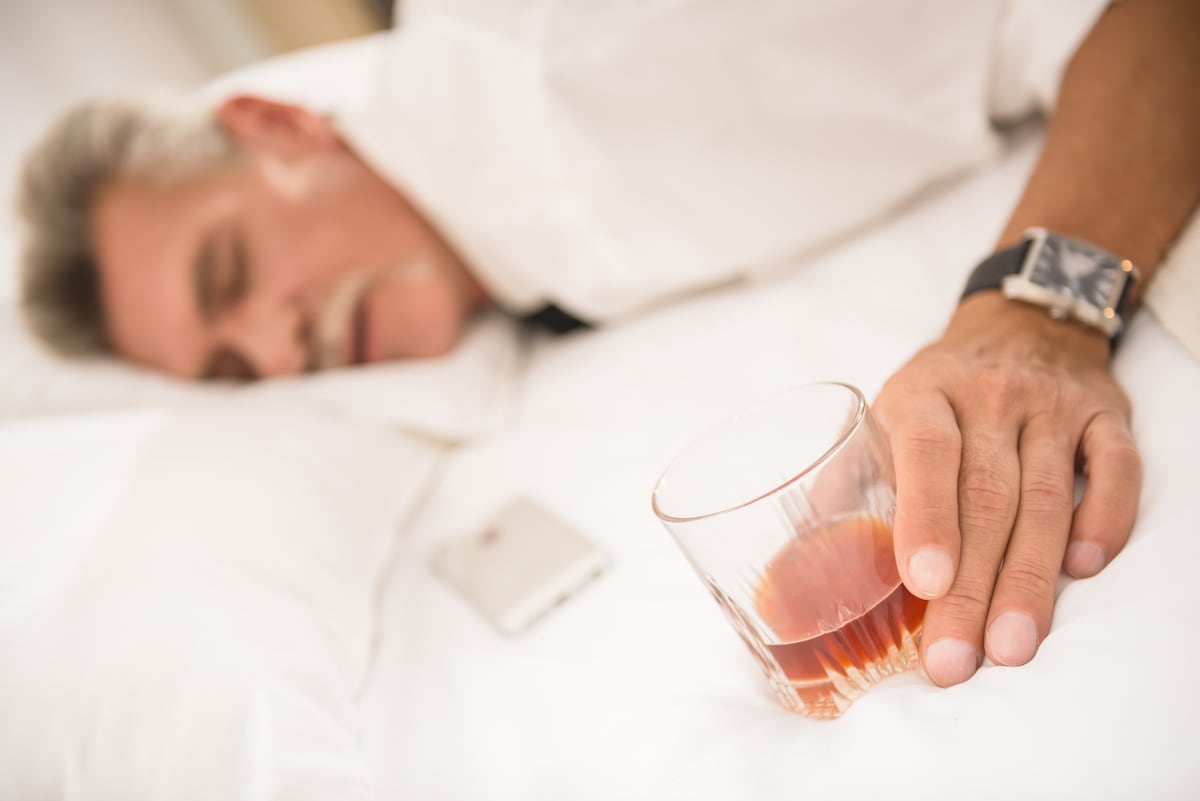Nearly all of us are familiar with symptoms we call a “hangover,” such as anxiety rising in the throat, a throbbing headache and general fatigue — but we may be not diagnosing them correctly. A study has analyzed the sleep patterns of more than 70,000 people over three years to learn more about a condition that suffocates and exhausts us on weekend nights: social apnea.
This condition consists of a variation or worsening of sleep apnea, a disorder in which breathing repeatedly stops or becomes very shallow during sleep. Researchers at Flinders University in Australia have suggested use of the suffix “social” because some apnea triggers are environmental, like alcohol consumption, smoking and lack of sleep, and become more common on the weekend.
Published in the American Journal of Respiratory and Critical Care Medicine, the study analyzed data from more than 70,000 people in 23 countries over three years. However, its most notable aspect was not the quantity of subjects, but rather the quality of data. Sleep apnea is tremendously under-diagnosed. It is estimated that up to 80% of those who experience it are unaware they have the condition.
Until recently, it was studied in a laboratory under controlled conditions, but that has changed with the rising popularity of applications to measure sleep. This latest study was carried out using such tools, plus a mat placed under subjects’ mattress, to get sleep data outside of the laboratory under real-life conditions. And in real life, people drink, smoke and stay up late, especially on the weekend. It turns out that such factors have a clear impact on sleep apnea data.
“We were surprised to see a very pronounced spike on weekends, which then stabilize during the week,” said the study’s primary author, Zaragoza, Spain biotechnologist Lucía Pinilla.
The probability of having sleep apnea was 18% higher on Saturdays compared with Wednesdays. A rise was consistent across all countries and demographics, but the effect was more pronounced among men (who were 21% more likely to be affected, in comparison with 9% for women) and among younger adults. Those under the age of 60 had a 24% higher risk during the weekend, in comparison with 7% among those over 60.
“In this study, we haven’t analyzed causes, but of course, we think it has a lot to do with lifestyle habits,” explains Pinilla. Previous scientific evidence backs up that hypothesis. A review of 23 studies finds that alcohol consumption increases the possibility of suffering from apnea by 25%. Diverse studies from recent years have demonstrated a correlation between tobacco use and sleep apnea. Some research suggest that it could comprise one of the biggest risk factors behind only age, being overweight and sex (men have two to three times higher risk of obstructive sleep apnea than women).
Irene Cano, a pulmonologist specializing in sleep medicine who is co-director of Madrid’s CISNe Clinic, gave the study a positive evaluation and says she’s observed clinical results that are in keeping with its findings. “We observe a very pronounced rise in consultations regarding sleep apnea after the summer and Christmas holidays, coinciding with periods of irregular sleep habits, higher consumption of alcohol and later schedules,” she explains. Cano, who was not involved in the study, values its large volume of data and long-term follow-up of those impacted by apnea. “We usually rely on studies conducted over a single night,” she says, “but these findings highlight the importance of taking night-to-night variability into account in diagnosis.”
Pinilla thinks that the study’s impact goes beyond its curious central finding, and that it could help us to better understand a pathology that sometimes flies under the radar. “Sleep apnea is a significant public health issue, but our findings suggest that its true impact could be under-estimated,” she says. Until now, “the majority of clinical diagnostic tests were carried out over a single night, normally during the week, which meant that they weren’t taking into account this weekend effect.”
And that can have consequences that previously went missing. Apnea not only can worsen the quality of life of those who suffer from it — in extreme cases, it can lead to having to sleep with a machine that helps individuals to breath. It is also a reliable indicator of the risk of cardiovascular accident.
According to the new study, changes in sleep schedule, such as staying up or sleeping late on the weekends, can aggravate sleep apnea. These schedule alterations, known as “social jet lag,” impact the quality of our sleep. On weekends, we tend to go to bed later and delay getting up in the morning. It may seem that these extra hours or minutes would lead us to waking up better rested, but for people with sleep apnea, that doesn’t always seem to be the case. Sleeping 45 minutes longer increases the risk of sleep apnea worsening by 47%. “It would be better to maintain a stable schedule throughout the week,” says Pinilla.
Scientists also noted seasonal variation. Apnea tended to worsen during the summer and winter, with a rise in severity between 8% and 19% compared to the spring and fall. “This seasonal spike is explained in part by higher temperatures, which disrupt sleep and cause lighter sleep phases, which is associated with a worsening in apnea,” explains the study. In the winter, sleeping for longer periods of time and waking up later increased the amount of time dedicated to REM sleep, which is also related to more frequent episodes of apnea.
Apnea is a common sleep disorder that affects around a billion people globally. It is caused by the repeated collapse of the respiratory channels during sleep. If serious cases go untreated, it increases the risk of suffering from cardiac diseases, diabetes, cognitive decline and depression, making early detection key.
Sign up for our weekly newsletter to get more English-language news coverage from EL PAÍS USA Edition
